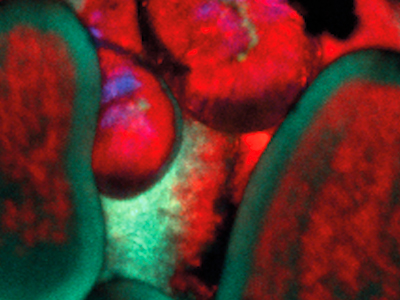Greetings from Prof. Dr. Dr. h.c. Volker Mosbrugger
General Director Senckenberg Gesellschaft für Naturforschung
A cooperation project between the Senckenberg Gesellschaft für Naturforschung and the Frankfurter Kunstverein – New Paths between Science and Art
Never before has the experienceable world changed so quickly as it does today. The “great acceleration”—i.e., the exponentially increasing use of our resources—is a reality and distinguishes the anthropocene with all its positive and negative effects. Never before have so many people prospered, and never before has nature and our environment suffered so much. Nature has become a limiting resource—so much so that the number of people displaced by environmental changes already exceeds that of those displaced by war.
Humanity must thus recalibrate its relationship and approach to nature in order to develop a more sustainable, future-oriented way of using natural resources. This is hardly a trivial task, and it requires a comprehensive understanding of the networked processes taking place in the human-earth system. Does science hold the keys to saving our world? Should science teach us how important nature actually is to us and how we should deal with it? Should politics simply implement these findings?
Unfortunately, the situation is more complex. On one hand, science does not deliver truths, but rather hypotheses. It always contains an element of doubt and thus finds itself at odds with the growing “intolerance of ambiguity” (Thomas Bauer) in contemporary society, which demonstrates an increasing preference for simple truths, fake news, and populism. According to evolutionary epistemology, there are also evolutionarily determined limits to human knowledge: our brain developed as a product of mutation and selection, and thus is only capable of generating “human knowledge,” much in the same way that a blackbird’s brain is only capable of producing “blackbird knowledge.”
On the other hand, scientific knowledge and hypotheses do not necessarily produce concrete transformations in our attitudes and actions. The path from knowledge to action is much longer, as the lack of clear results from the ongoing global climate negotiations initiated in 1992 most clearly demonstrates. If we wish to effect a transformation in attitudes and actions, the urgency of this change should not only be understood intellectually. It must be internalized on the level of emotions and be deeply emotionally desired.
The goal of the cooperation between the Senckenberg Museum and the Frankfurter Kunstverein is to use a novel way of bringing together art and science in order to present the audience with new perspectives and narratives about selected exhibits at both institutions. Both institutions have contributed their respective competences toward achieving this goal.
The heart of this cooperation is the continuously changing, yet constantly conflicted and ambivalent relationship between humans and nature, with all its positive and negative consequences. The interventions in both institutions conceived especially for this project enable an expansion or disruption of previous patterns of perception and thus entangle the two institutional fields. Scientific approaches can thus be experienced emotionally, and new spaces of experience and thought can be opened up.
Ultimately, I hope that this collaboration will promote our sensitization to the unique challenges of the anthropocene.
Prof. Dr. Dr. h.c. Volker Mosbrugger
Generaldirector Senckenberg Gesellschaft für Naturforschung
Prof. Dr. Dr. h.c. Volker Mosbrugger is General Director of the Senckenberg Society for Nature Research. As a palaeontologist his research focuses on the effects of climate change and the associated loss of biodiversity for humans and the Earth system. He analyses today’s ecological and climatic changes against the background of geological processes in order to gain fundamental insights into vegetation changes and the development of ecosystems and mechanisms.


